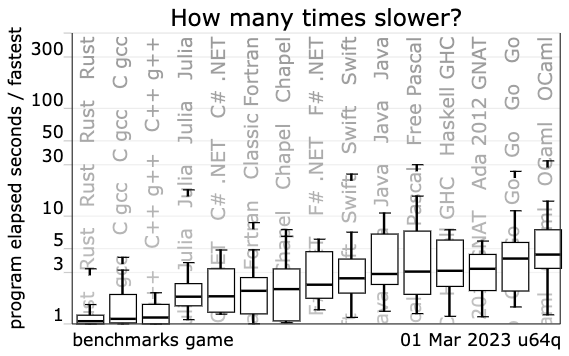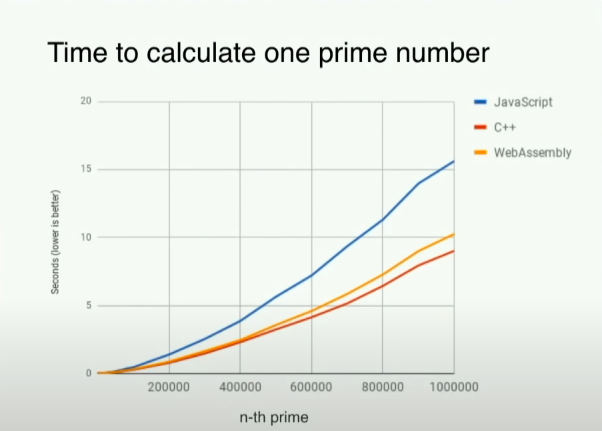
Rust in the Frontend
A brief guide to making websites with Rust in 2023
Daniel Mason

Why would I want to do that?
Rust is fast
Rust is a language known for its speed

WASM is fast
WASM is known to provide a secure, high performance runtime for the web

Rust WASM ecosystem is very mature
- Tier 2: rustup add target wasm32-unknown-unknown
- Living book, tutorials, tools: https://rustwasm.github.io/
- Write once, run anywhere: https://tauri.app/
- Official Rust WASM Working Group: https://www.rust-lang.org/governance/wgs/wasm
Rust is robust, reliable and 'correct'
Typescript:
async function getUser(email: string): Promise<Result<Error, User>> {
const response = await fetch(`https://example.com/${email}`);
const user = await response.json();
return user.email === email
? Result.ok(user)
: Result.error(new Error('Incorrect user returned');
}
Rust:
async fn getUser(email: &str) -> Result<User, GetUserError> {
let user: User = get(format!("https://example.com/{email}")).await?
.json().await?;
if user.email == email {
Ok(user)
} else {
Err(GetUserError::IncorrectUserReturned)
}
}
What are my options
Counter Example


Yew
- Yew looks a lot like React
- Uses a Virtual DOM
- Supports CSR, SSR, and SSG
Yew Counter
#[function_component]
fn Counter() -> Html {
let counter = use_state(|| 0);
let increment = {
let counter = counter.clone();
move |_| { counter.set(*counter + 1); }
};
let decrement = {
let counter = counter.clone();
move |_| { counter.set(*counter - 1); }
};
html! {
<div>
<p>{ *counter }</p>
<button onclick={increment}>{ "+1" }</button>
<button onclick={decrement}>{ "-1" }</button>
</div>
}
}
Yew Counter Usage
#[function_component]
fn App() -> Html {
html! {
<>
<h1>{"Counter Example - Yew"}</h1>
<Counter />
</>
}
}

Perseus (Sycamore)
- Perseus is to Sycamore what Next is to React
- Does not use Virtual DOM, uses 'fine grain reactivity'
- Supports CSR, SSR, and SSG
Perseus Counter
#[component]
#[auto_scope]
fn Counter<G: Html>(cx: Scope, state: &CounterStateRx) -> View<G> {
let increment = move |_| { state.total.set(*state.total.get() + 1) };
let decrement = move |_| { state.total.set(*state.total.get() - 1) };
view! { cx,
div {
p { (state.total.get()) }
button( on:click = increment}) { "+1" }
button( on:click = decrement) { "-1" }
}
}
}
Perseus State
#[derive(Default, Serialize, Deserialize, Clone, ReactiveState)]
#[rx(alias = "CounterStateRx")]
struct State {
total: i32,
}
Perseus Counter Usage
#[auto_scope]
fn index_page<G: Html>(cx: Scope, state: &CounterStateRx) -> View<G> {
view! { cx,
h1 { "Counter Example - Perseus" }
Counter(state)
}
}

Dioxus
- Similar 'reactivity' approach to Sycamore
- Looks a lot like Sycamore too
- Supports CSR, SSR, SSG, Desktop, and more!
Dioxus Counter
fn Counter(cx: Scope) -> Element {
let mut count = use_state(cx, || 0);
render!(
p { "{count}" }
button { onclick: move |_| count += 1, "+1" }
button { onclick: move |_| count -= 1, "-1" }
)
}
Dioxus Counter Usage
fn App(cx: Scope) -> Element {
render!(
h1 { "Counter Example - Dioxus" }
Counter { }
)
}
Comparison
| Name | dioxus v0.4.0 | sycamore v0.8.0 | react v18.2.0 | yew v0.20.0 |
|---|---|---|---|---|
| create rows | 39.7ms | 45.2ms | 45.6ms | 69.4ms |
| replace all rows | 43.1ms | 49.8ms | 48.4ms | 73.3ms |
| partial update | 83.6ms | 90.5ms | 103.2ms | 100.0ms |
| select row | 13.4ms | 17.7ms | 24.1ms | 21.6ms |
| swap rows | 26.8ms | 26.2ms | 160.7ms ⚠️ | 27.0ms |
| remove row | 40.9ms | 41.3ms | 43.5ms | 42.1ms |
| create many rows | 433.3ms | 569.3ms | 619.2ms | 2,386.9ms ⚠️ |
| append rows to large table | 91.8ms | 100.5ms | 99.5ms | 153.8ms |
| clear rows | 32.8ms | 33.0ms | 30.7ms | 52.0ms |
| geometric mean of all factors in the table | 1.16 | 1.29 | 1.67 | 1.90 |
Results from js-framework-benchmark
Conclusion
Wait, should I even do this
Probably not
- Speed isn't everything
- Speed differences are small
- Converting between HTML and these DSLs is painful
- We all already know React
- None of these frameworks are stable
Probably not

But Maybe

But Maybe
- These speeds are for rendering
- Speed differences are much greater for raw calculations
- Isomorphism means these work great with Rust based servers
- You get all that correctness goodness I mentioned earlier